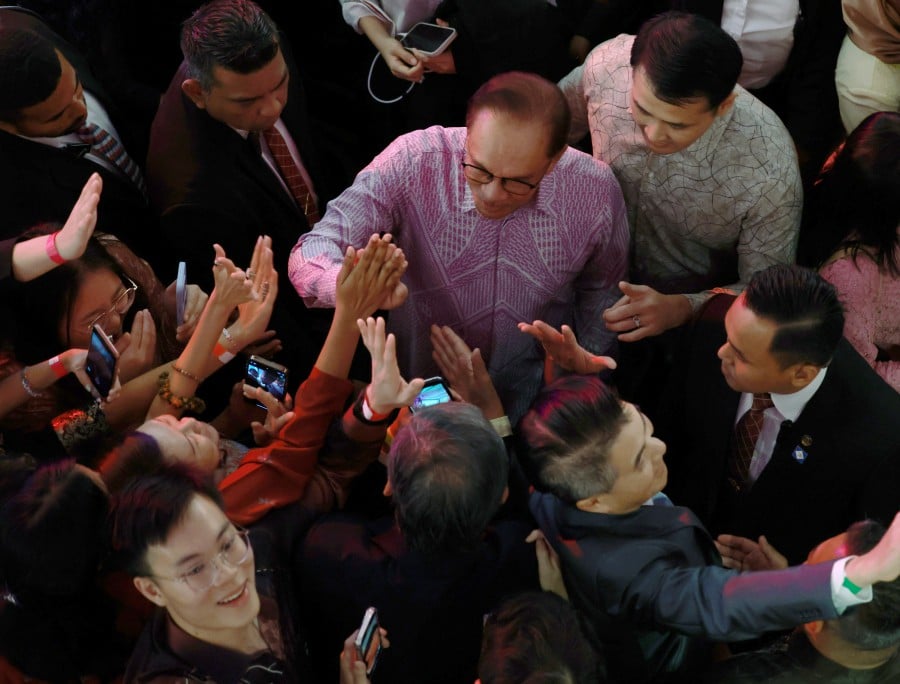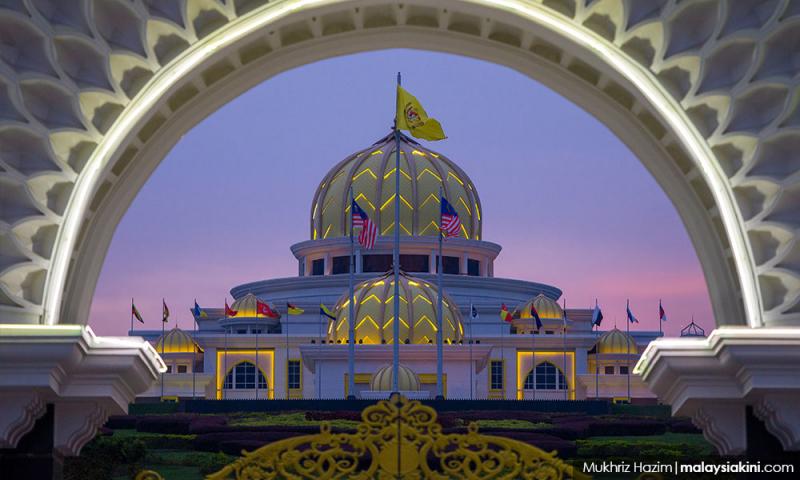
Published by AstroAwani, Focus Malaysia, The Malaysian Insight, New Straits Times & TheStar, image by New Straits Times.
The history of Malaya, ultimately, Malaysia, is replete with examples of constant calls for reforms. Whether the spear of reforms is aimed at education, the mindset of Malays or Malaysians, the calls for change are endless.
This tradition comports not with Harold Lasswell’s conception of politics as a process of “who gets what, when and why,” but David Easton’s idea of “politics as the authoritative allocation of values.”
What is the difference, fine as it may be, when it comes to using the handy definition of David Easton to understand the Madani government? That is as opposed to using Harold Lasswell’s approach as an explanatory framework.
First and foremost, as and when Malaysians, for that matter Malays, have been unhappy with the status quo ante, in other words, the current order, the civil society has never been short of critics.
In the case of Muslim reform, for example, granted that most Muslims are Malays and vice versa, the likes of the Malay Youth or Kaum Muda has spoken out against the conservatives or Kaum Tua in the early part of the 1900s.
Any rejoinder against the powers that be has been tolerated and accepted. The authorities, including colonial ones, have tried to their best to listen to the grouses of the public, irrespective of class, race and creed, except the far left, which are the Communists.
Even there was even an effort to engage the leading stalwarts of Communists, especially Chin Peng, by the late Tunku Abdul Rahman, in 1950, in Baling Kedah, years before Malaya was given its independence on August 31 1957. To the degree the Communist members insisted on joining the political process of Malaya, then Malaysia, that was where Tunku Abdul Rahman and his government drew the red line clearly.
Then there are efforts to listen to the view of the 20 points of the Malaysia Agreement 1963 (MA63), which is what Prime Minister Anwar Ibrahim is systematically doing to make sure Sarawak and Sabah are as important as the Peninsula Malaysia.
Such efforts from the government imply that regardless of how the Malaysian government is named, whether it is a Madani Government, a civil government, or otherwise, the administration of Prime Minister Anwar Ibrahim is not averse to listening to the grouses of the people.
That is because the Madani Government is “Eastonian” in thrust. Instead of hammering away all dissent or responding to the people only after they have raised the proverbial white flag, such as the case during the 17 months lockdown during the pandemic that began on March 18 2020, the government of Prime Minister Anwar Ibrahim has been doing nothing but to lead and listen.
To the degree that the prices of food, fuel, fertilizer and animal feed continue to spiral upward, that’s because of events external to Malaysia. Such as the war in Ukraine and, consequently, the embargo imposed on the export of rice by India. This is despite the moderating inflation in Malaysia.
Indeed, if more factors need to be stated, one should look no further than Malaysia and the world’s exposure to the tightening of oil supply. As set by the member states of the Organisation of Petroleum Exporting Countries (OPEC), time and again, not excluding Russia.
To the critics of the Madani government that the Prime Minister Anwar Ibrahim is not doing anything tangible, and is merely an echo chamber of what the Member of Parliament of Muar, Syed Saddiq, called NATO — therein something akin to No Action Talk Only (NATO) — then the likes of him cannot but be oblivious to the foreign direct investments (FDI) that have begun to stream into Malaysia.
Be it TESLA, Amazon or Geely, all three combined are contributing more than a total of USD 50 Billion combined. All three surely must be aware of the review of the 12th Industrial Master Plan of Malaysia and the National Energy Strategic Transition 2050.
Reforms are at work when Prime Minister Anwar Ibrahim is clearly in command of the importance of reducing the fiscal deficit of Malaysia from 5.6 per cent last year to 5 per cent this year, if not by 2024, then down to 3.2 per cent by 2025.
Malaysia’s inflation rate too moderated to 2 per cent in August 2023, unchanged from the previous month. Notwithstanding that, more efforts need to be done to rue the reduced costs of living, specifically food and beverages by executing holistic food security strategic plan that is in the works. It was announced in the previous sittings of the Parliament, a specific agency — Malaysian Food Security Agency (MFSA) — is being considered to focus on ensuring food security agenda of the nation to reduce over-reliance on imports.
All such efforts imply Prime Minister Anwar Ibrahim, who is concurrently the Minister of Finance, does understand what and how to allocate the most important resources, all of which are scarce, to the key actors and sectors in the country. These “authoritative allocation of values,” can keep Malaysia afloat amidst the necessity of drastic changes, such as the crisis brought about by large rainfall, “the likes of which had, time and again, caused severe flash floods, even landslides.”
To those who argue that the Printing Presses and Publications and the Sedition Act have not been reformed, one needs to keep in mind that this government is merely less than a year old.
There may or may not be elements from within the Unity Government that is not in favour of amending these legislations, in which case then Prime Minister Anwar Ibrahim must exercise extreme caution by placing economic reforms as the wisest first step forward.
“Authoritative allocation of values” suggests a government that tries to work on the basis of evidence-based results. Entities such as EMIR Research, Ilham Centre of Research, are not averse to allowing the government to know it has been performing or not.
This is the feedback mechanism that the government of Prime Minister Anwar Ibrahim is adopting aside from listening to the feedback from the government machineries. To say that the government does nothing but talk — is not only unfair but reeks of self-interest to pressure the government into doing what the individual and splitter party would like to see. But that is not necessarily what the government formed of 10 Coalition Parties can agree with too.
It must re-emphasised that the present Anwar Ibrahim administration has inherited RM1.5 trillion of debts. Not forgetting the RM4.5 trillion economy loss for the past 26 years since 1996 through corruption and leakages as was written by EMIR Research (for details refer to the earlier article by EMIR Research “Malaysian Monetary Loss to Corruption and Leakages – RM4.5 Trillion over 26 years”).
Taking stock of what has been inherited, understand ground realities and navigate tactfully so Anwar Ibrahim administration stays the course of reforms in a pragmatic way to achieve the intended reform outcomes. Initial euphoria and drastic and swift changes will only invite negative reactions and push backs from the majority Malays, aided and fuelled by opposition politicians who thrives on identity politics of race and religion to survive that is monumentally detrimental to the rebuilding of the nation given the geo-economic and geo-politics challenges. After all, Rome is not built in a day, what more a “Rome” with decades of decadence!
Dr Rais Hussin is the President and Chief Executive Officer of EMIR Research, a think tank focused on strategic policy recommendations based on rigorous research.

